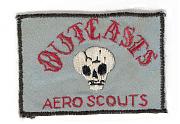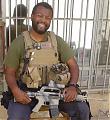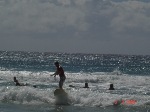From my vantage point here on Rancho La Espada I can argue that horses DO provide some real advantages in terms of mobility - especially in insurgent warfare. BTW, both the Small Wars Manual and Callwell's Small Wars discuss the use of horses and mules.
During the El Salvador war, one of the major problems faced by the ESAF was pursuit of guerrila units. The standard G tactic was to drop anti-personnel mines on the trail to discourage direct pursuit from getting too close. Indeed, most ESAF casualties were caused by mines. One obvious solution was increased use of helicopters but the US was not going to supply more helos in the significant numbers required.
Meanwhile, in the Small Wars Operations Research Directorate (SWORD) we had a countermine program going with the ESAF. It involved a combination of off the shelf metal detectors, blast chaps and booties from Natick labs, and a c-m training program. I tried to sell my boss on using horses to substitute for the helos that were never going to come. One cultural problem was that the ESAF cavalry (like most horsemen) really loved their horses and such a program would put them at risk. So, I proposed calling these folk "Mounted Infantry" and mounting them on cheap little horses that could be had for about $150 each. My idea was a mounted pursuit platoon with a remuda of 5 horses per rider. The point man would be equipped with the blast chaps and booties. His horse would trigger the mine - the animal would be destroyed but the rider would be safe - and a second equally equipped rider would take point. The first guy would mount a new horse and follow on. Meanwhile, there would be no slowing of the pursuit.
Needless to say, I failed to convince my boss

but it was still a good idea.
BTW, SF has used horses both in Afghanistan and, more importantly, in JTF 6 on the border with Mexico in the "Drug War."









 That was sheer & epic genius. That and the paragraph summarizing the working of Congress were Pullitzer material.
That was sheer & epic genius. That and the paragraph summarizing the working of Congress were Pullitzer material.

 Excellent book in my very biased estimation.
Excellent book in my very biased estimation.

 but it was still a good idea.
but it was still a good idea.

Bookmarks